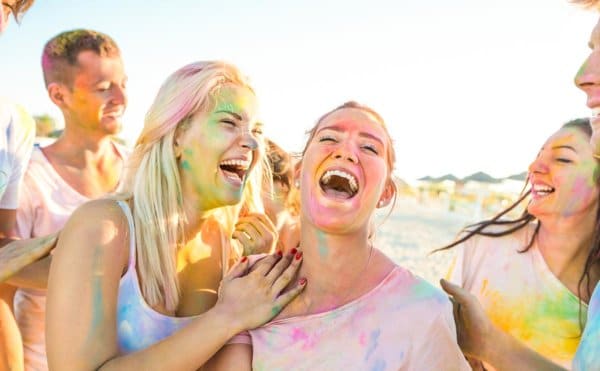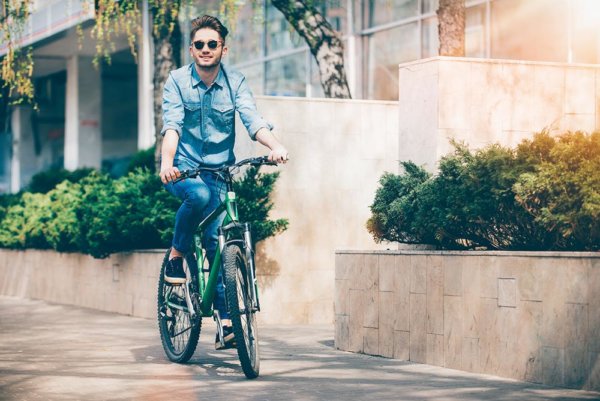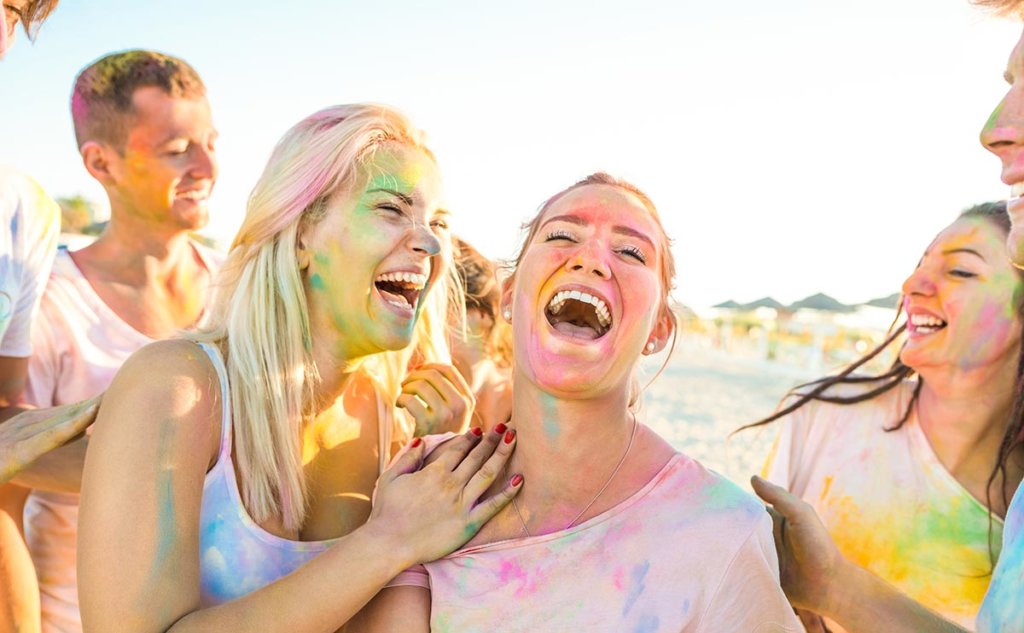7 Ways to Have Summer Fun Without Using

Most people who have never used or experimented with drugs or heavy alcohol use would probably laugh at the idea of not knowing how to have fun, but for a recovering addict, that question is normal and natural.
Drugs, including prescription medicine, change the way you think and behave, because they stimulate your brain, flooding the receptors in the reward system with neurotransmitters that make you feel happy, content, relaxed, or even euphoric. Once this sensation fades, you aren’t left wanting to go hang out with friends, go see bands, work on a project, or do anything else fun, you just want more of the drug.
Over time, this often leads to either abandoning or losing interest in anything that doesn’t have to do with your substance. Users find themselves associating with other users, staying inside to use, and typically avoiding hobbies and skills development that take time and patience or steady hands, and therefore require a fully functioning reward system as motivation.
Once you get clean, this doesn’t go away. Instead, you’re left bored, dissatisfied, and craving something to fill the space. If you went to a quality rehabilitation center, you likely learned coping skills, learned to develop new hobbies, and possibly were pushed into good exercise habits to help keep yourself happy. If not, you’re largely on your own there. You have to learn how to have fun again without drugs.
While many people have trouble learning to have fun after addiction, there are plenty of ways to do so. Enjoying yourself over the summer or over summer break is easier and likely a lot more exciting without drugs in the way.
1. Work Out
Working may not be your idea of fun, and that’s okay. However, even if you absolutely hate your time spent at the gym, exercising helps you to relax, balances out the serotonin and dopamine production in your brain helping you to stay happy, and helps you to feel better. All of these will contribute to you having a better summer, without ever touching drugs or alcohol. Even taking 30 minutes out of your day to exercise in the morning can help you to feel better and have more energy throughout your day.
However, while many people think of working out and immediately think of pumping weights at the gym or an early morning run, exercise can take many forms. There are plenty of fun ways to exercise that have nothing to do with repeating the same behavior over and over again. Try out dancing, yoga, Pilates, cycling, hiking, swimming zumba, and any other activity available in your area. Persons who are disabled can often take advantage of swimming and other some exercises designed just for them. Most offer short free trials which you can use to get a feel for the exercise, and if it’s fun, you should stick to it. If you’re having fun and challenging yourself, you are much more likely to continue the activity. If you (or your parents if you’re a teen) don’t have the funds to pay for expensive classes, there are plenty of low-cost and free options found at schools, libraries, and colleges which you can likely enroll in.
2. Develop a Hobby

Whether you have old hobbies that you put down or have to develop new interests, hobbies can be fun, rewarding, and good for your recovery. Working on hobbies allows you to develop skills, to pace yourself, to reward yourself, boost your motivation and self esteem, and watch yourself improve at something you are interested in. It’s also a lot of fun to learn, especially if you can do so in a group or with a good teacher.
However, if you don’t have money to go to a class, don’t be intimidated. Learning from the Internet or a site like YouTube is just as valid and stimulating as learning in a class. What can you learn? Almost anything. Photography, computer programming, painting, a musical instrument, cooking, embroidery, mechanics, building robots, etc. If you need to learn practical skills like cooking and housekeeping, you should naturally focus on those first, but you do want to learn things that are fun, exciting, and challenging for you to do.
3. Go Outdoors
From hiking to camping to simply going for walks, summer is the perfect time to be outdoors. Try going for a walk for 30-60 minutes every evening if you have the time and don’t bring your phone. Simply enjoying nature and relaxing can help you to destress, especially if you aren’t distracted by things you have to do, people talking to you, or other stressful events.
If you live in an urban area, try to make time to go to the park or travel on a weekly basis to a nearby national forest or park based on availability. You can hike, fish, go hunting, camp, or simply enjoy yourself outdoors to see benefits and to have fun.
4. Play Sports
Sports are not for everyone. However, they are good for you and they do make most people happy. While playing sports ties into the same exercise induced happiness as exercise, sports are often group events, which will allow you to interact with others on a social level, develop teamwork, and be competitive. Because these things make you happy, you will likely enjoy yourself. What sport should you join? Nearly every city has some sporting areas where you can try out almost anything and learn it. Tennis, soccer, volleyball, roller derby, football, golf, and many other sports are all easy to join and fun to play.
If you are disabled, have social anxiety, or another reason why physical sports are not a good fit for you, there are plenty of other options. Even engaging with others in public games such as chess can stimulate your competitive side and help you to have fun, although it will be at a much slower pace.
5. Go to the Beach or Lake
Most people associate summer fun with water and why not. Water, the beach, and water sports are fun and enjoyable. Your only concern will likely be that many people tend to drink or use at the beach or lake because they see it as a party atmosphere. Be prepared, plan to see alcohol if you are supposed to be staying sober, bring your own drinks, and if you can, bring a sober buddy.
What can you do? Read, spend time in the water, go swimming, tan, go surfing, go sailing, build sandcastles, literally anything you want.
6. Attend a Self-help Group
Sobriety groups are no one’s idea of fun, but they can be a great source of fun, clean activities with no drugs or alcohol present. If you’re already attending a group, you can meet up there and request a copy of the agenda to see what is happening. Attending meetings can also help you to create motivation and accountability, so that you stay clean even if other people are using. Groups are effective at helping you to stay away from substance use, because they consistently provide support and offer help when you need it. And, if you have that, you are much more likely to enjoy the rest of your summer.
7. Meet New People and Spend Time with Friends
Spending time with friends and family is enjoyable under almost any circumstances, however, there are considerations. If your friends or family are negative influences, make you feel bad, or are stil using, you should avoid them. Spend time with people who are a positive influence in your life, make new friends in positive environments (such as the gym or your sporting club), and work on spending time with them. Go to museums, hang out and watch television, play video games with friends, go hiking together, and enjoy other social activities.
Meeting new people as a recovering addict can be difficult, especially if it is necessary to disclose your former addiction when going to parties, but it can be rewarding, can help you to broaden your horizons, and will help you to enjoy your summer.
Having fun without drugs is often easier than with. While you won’t have a drug telling your brain that you feel good, you will be able to enjoy and participate in a wide variety of activities and social interactions, which eventually are much more rewarding and satisfying.
Enjoy your summer.
Beginnings Treatment Centers addiction treatment centers are located in beautiful and sunny Southern California in Orange County, which has one of the strongest and most active recovery communities in the United States. If you or a loved one is currently experiencing a problem with addiction, please Contact Beginnings Treatment Centers Now.


